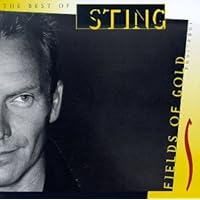 Sting (born Gordon Sumner) is one of those hold-overs from the last golden age of music. His career took off as lead singer for the band The Police, whose pop singles such as “Don’t Stand So Close to Me” scored gold even when re-released. Since the break-up of The Police in 1986, Sting has had his share of solo chart-topping success with power albums such as Dream of the Blue Turtles, but I’m not sure his latest endeavor, The Last Ship, will do as well.
Sting (born Gordon Sumner) is one of those hold-overs from the last golden age of music. His career took off as lead singer for the band The Police, whose pop singles such as “Don’t Stand So Close to Me” scored gold even when re-released. Since the break-up of The Police in 1986, Sting has had his share of solo chart-topping success with power albums such as Dream of the Blue Turtles, but I’m not sure his latest endeavor, The Last Ship, will do as well.
Don’t get me wrong – the album is lovely and showcases Sting’s wide range of talents in a heavy northern accent we didn’t hear during his Police years. The songs – his first after a ten-year writing hiatus while he dealt with the deaths of his parents – are soft, almost melancholy, exploring the closing of the shipyards in the town he’d grown up in. It’s a long, long way from “Roxanne” or “King of Pain.” Instead, we’re left with an album that vacillates between traditional-sounding folk tunes (the haunting title track, “The Last Ship,” which never seems to want to leave your head) and soft Sunday-brunch jazz (“August wind”). If there’s a bad side to the album, it’s that it lacks the wider scope of variety we’ve come to expect from Sting as he has explored various types of music, from pop to rock to jazz to symphony.
If you love soft music, or ballads, or folk music, you’ll enjoy this album, The tunes are haunting, the lyrics thoughtful, with a presence so strong you feel as if you’re walking the streets through an old British-Isles sea town. If you’re looking for chart-climbing pop singles, go back to Fields of Gold.